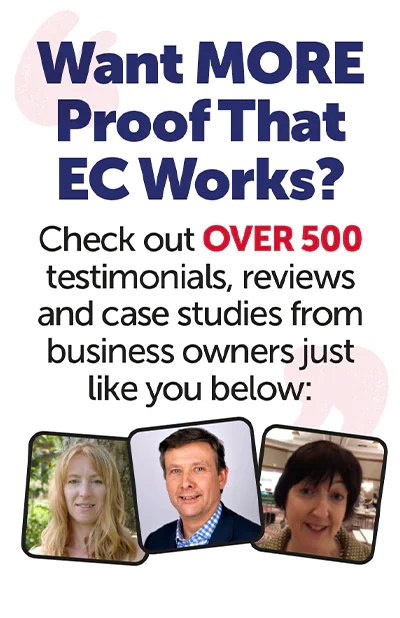
Three lessons for the price of one this month – all of them practical and capable of increasing your sales and getting you more customers…
1. What does “It’s too expensive” mean?
Sometimes, especially among the undeserved poor, it does mean that “There isn’t enough money to pay for that”.
But most of the time the things that are within the realm of possibility could be paid for, it’s just that people choose not to and use “It’s too expensive” or, “I can’t afford that” as excuses.
One person might say that they can’t afford a golf club membership, say, or that it is “Too expensive” whilst someone else, with exactly the same income might happily pay for it.
“It’s too expensive” or “I can’t afford it” almost never means “There isn’t enough money if I think it’s worth it” and that’s a marketing challenge.
Even at the bottom of the pyramid, many people find a way to pay for the things that they value. Look at the large TVs and satellite dishes in the homes of people whom some of our politicians would have us believe are living below the poverty line.
It’s much more helpful when you hear these phrases to recognise that what it actually usually means is that, “It’s not worth it”. This is a totally different analysis. Lots of things aren’t worth it, at least to you, right now.
Not everyone will value your offering in the same way, so if you wait for noone to say “It’s too expensive” before you go to market, you’ll never go to market. The challenge isn’t in pleasing everyone, it’s in finding the few who see the value (and thus the bargain) in what you’re offering.
Culturally, we create boundaries for what something is worth. I was in Jamaica last year where pomegranate juice was for sale on the streets of Montego Bay for one dollar. And it’s delicious.
That same juice, in London, would be seen as a bargain for five times as much money. Now, I’m not discussing the people’s ability to pay, nor the absolute value of a glass of juice, what I am saying is that this is about our expectation of what ‘people like us pay for something like that.’
If you start with a tribe or community that does value what you do and then do an even better job of explaining and storytelling and increasing the perceived value, instead of lowering your price, then you’ll be in a much stronger position.
When you recognise that you don’t need everyone to buy what you sell, then “It’s too expensive” from some people is actually a useful reminder that you’ve priced it appropriately for others in your audience.
Over time, as influencers within a tribe embrace the higher price, then the culture starts to change. When people like us start to pay more for something like that, it becomes natural (and sometimes even urgent!) for us to pay for it too – just look at what’s happened in coffee shops all over the country.
2. Saying ‘Thank You’
I got a lovely letter in the post from Tony Laithwaite recently. He’s the guy behind Laithwaite’s Wine.
It was a single page letter and it began:
“Dear Mr Botterill,
Today I’m writing to say thank you for being one of my best customers… and to thank you not just with words but properly…”
He then goes on to offer me some free champagne and tells me again how much he appreciates my business.
Wonderfully simple – but it does work. I do feel more valued and yes, I did order the other wine that I needed to in order to get the free champagne from him.
We had lots of success amongst our Mastermind members with Valentine’s cards that were sent to their customers this year, essentially saying the same kind of thing. Many tens of thousands of pounds worth of business generated as a result. No over-sell, just genuine appreciation. One of the smartest, easiest strategies AND you make people feel good…
Why aren’t you putting this Circular down now and getting on with it?
3. Beautiful Questions
At February half term I went on holiday to Dubai and I managed to spend several very pleasant afternoons by the pool, catching up on some reading. There’s a great new book by Warren Berger called “A More Beautiful Question: The Power of Enquiry to Spark the Breakthrough Ideas”
I’d been sent an advanced copy and I found it really fascinating. I’ve often talked about how the quality of our questions defines our lifestyle (for each and every one of us) but this took my understanding of what makes a good question to a completely new level.
For instance, a beautiful question reframes an issue and forces you to look at it in a different way.
It often challenges assumptions and is really ambitious. It might begin with “How might we…”
I’ve used them recently in my business and it’s starting to cause ructions.
He talks about other questions that don’t get asked early enough in new projects, including the fundamental one like, “Why are we doing this?” “What do people really care about?”
He then goes on to give examples of things like, “What if we did this backwards?” “What if we were to subvert all the assumptions in this field and do something that sounds ridiculous?”
This is how interesting ideas emerge and some of these questions were at the heart of us developing our Club+ offering, which is going so well and has made such a big difference to our business over the first few months of 2014.
Asking yourself the right questions could do the same for you…


